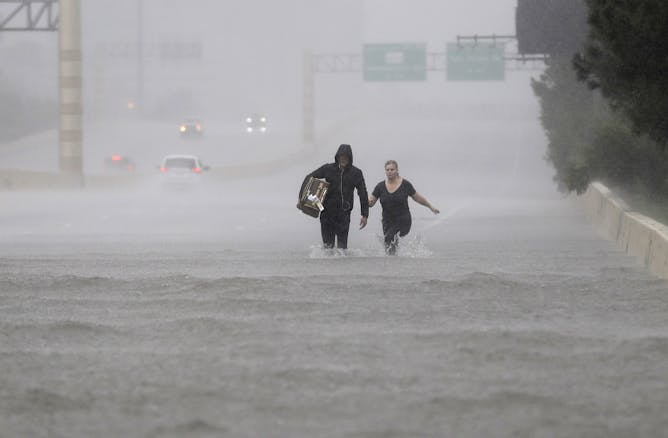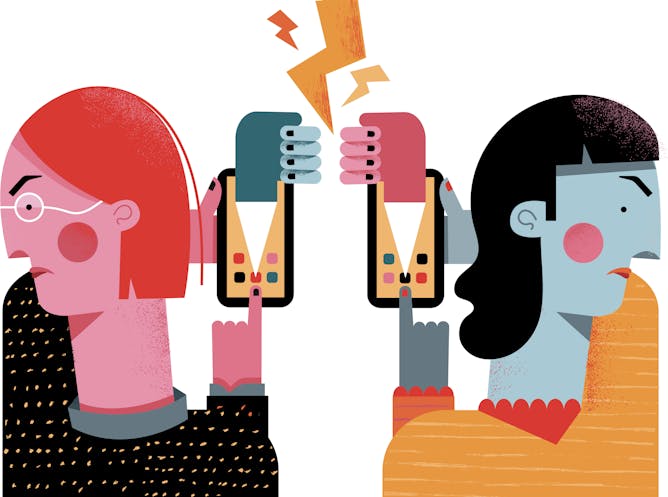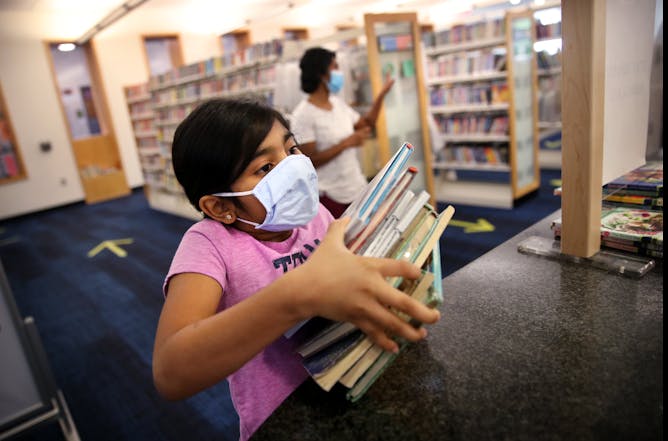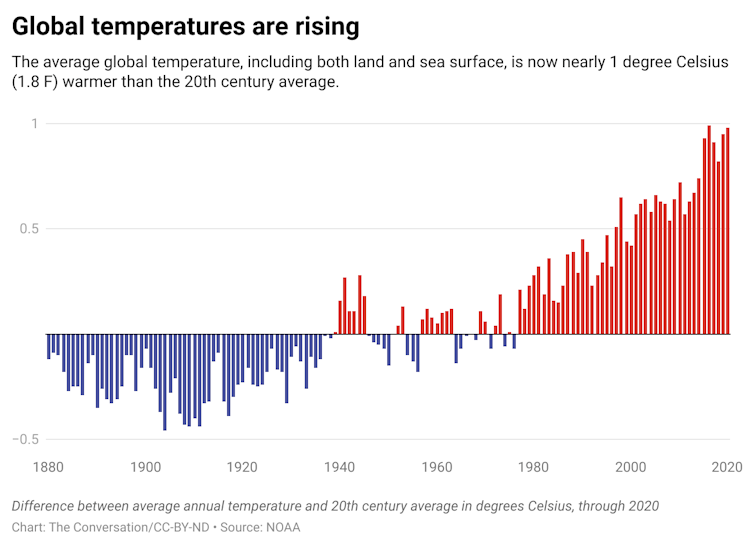|
If you’ve noticed what seem to be more torrential downpours or huge dumps of snow in recent years, you are picking up on something a team of climate scientists identified in global weather records. Extreme precipitation events have become more common. And using machine learning, the researchers determined that human activities, including burning fossil fuels, are to blame. Buckle up for further warming of the planet to continue to intensify rain and snowfall.
Have you ever found yourself getting riled up on social media and either firing off a heated post or logging out in disgust? Platforms like Facebook and Twitter aren’t exactly known for their civil discourse. But maybe they could be, suggests one computer scientist who surveyed regular people about some design features that could help elevate the tone. See what you think of these potential updates.
Finally, we have some recommendations for the young readers in your life. Two STEM education and curriculum experts identify books that can help kids think like engineers by encouraging them to “ask, imagine, plan, create, test and improve” – using stories about a chocolatier, a puppeteer, the inventor of the Super Soaker and more.
Here are some other good reads from the past week in science:
If there’s a subject you’d like our team of science editors to investigate, please reply to this email.
|

Hurricane Harvey dumped an unheard-of 60 inches of rain in parts of Texas in 2017.
AP Photo/David J. Phillip
Gavin D. Madakumbura, University of California, Los Angeles; Alex Hall, University of California, Los Angeles; Chad Thackeray, University of California, Los Angeles; Jesse Norris, University of California, Los Angeles
Scientists used artificial neural networks to analyze precipitation records from around the world. They found evidence of human activities influencing extreme rain or snowfall in every one.
|

Technology can trip people up on the road to finding common ground.
Johanna Svennberg/iStock via Getty Images
Amanda Baughan, University of Washington
How social media services work – the nuts and bolts of interacting with others online – has the power to shape and improve online arguments. Here's how.
|

Engineering lessons can be found in many books kids already have at home or their local library.
Craig F. Walker/The Boston Globe via Getty Images
Michelle Forsythe, Texas State University; Julie Jackson, Texas State University
Picture books and young adult biographies can introduce kids to design-based thinking and engineering habits like creativity and persistence.
|
Other good finds:
|
-
Dana Goldman, University of Southern California; John Rowe, Columbia University; Reginald Tucker-Seeley, University of Southern California
Medical innovations paired with innovative programs to get them to Black, Indigenous and Hispanic Americans can help close the health inequality gap.
-
Elisa J. Sobo, San Diego State University; Diana Schow, Idaho State University; Stephanie McClure, University of Alabama
People who haven't gotten vaccinated for COVID-19 often have complex reasons for their relunctance or may face other barriers. Lumping them all together undercuts the vaccination campaign.
-
Robert Gabriel Varady, University of Arizona; Andrea K. Gerlak, University of Arizona; Stephen Paul Mumme, Colorado State University
Record heat and low rainfall are drying up water sources shared by the American Southwest and northern Mexico.
-
Mayank Kejriwal, University of Southern California
An AI analysis shows that differences in how New Yorkers and Angelenos tweet go beyond the words they use.
Today’s graphic

|
|